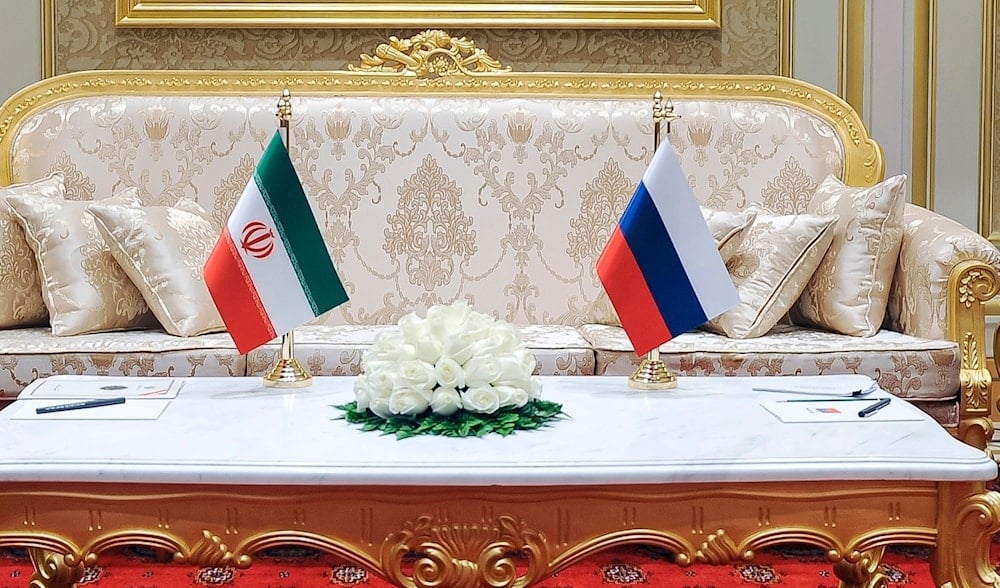Russia-Iran treaty signing unrelated to Trump Inauguration: Moscow
Both nations have faced significant economic challenges due to Western sanctions, and this partnership aims to bolster their economic, defense, and technological cooperation.
-

Picture of the Russian and Iranian flags taken on the sideline of the summit of Caspian Sea littoral states in Ashgabat, Turkmenistan, on June 29, 2022. (AP)
Moscow is set to host the signing of a Comprehensive Strategic Partnership Treaty between Russia and Iran on January 17.
The agreement will be formalized during Iranian President Masoud Pezeshkian’s visit to the Russian capital, alongside Russian President Vladimir Putin.
The forthcoming treaty is designed to replace the existing 2001 agreement, reflecting the substantial expansion of cooperation between the two nations over the past two decades.
It encompasses a wide array of sectors, including politics, economics, modern technologies, information and cybersecurity, peaceful nuclear energy, defense, and military matters.
Kremlin spokesperson Dmitry Peskov has addressed speculations regarding the timing of the signing, which is scheduled just days before the US presidential inauguration on January 20.
"Numerous speculations about the choice of date for signing the Comprehensive Strategic Partnership Agreement between Russia and Iran on the eve of Trump's inauguration only cause a smile," the spokesman said.
Strategic alliance
This development follows a series of high-level engagements between Moscow and Tehran.
In September 2024, President Putin lauded the "strategic" partnership between Russia and Iran during a meeting with Ali-Akbar Ahmadian, Secretary of Iran's Supreme National Security Council, in St. Petersburg.
Putin attributed the strengthening ties to the support of Iranian Leader Sayyed Ali Khamenei and expressed anticipation for further collaboration.
Read more: Iran, Russia strengthen commitment to North-South Transport Corridor
The Comprehensive Strategic Partnership Agreement is expected to chart the course for Russian-Iranian relations over the next two decades, signaling a deepened alliance amid evolving geopolitical dynamics.
Both nations have faced significant economic challenges due to Western sanctions, and this partnership aims to bolster their economic, defense, and technological cooperation.

 2 Min Read
2 Min Read










